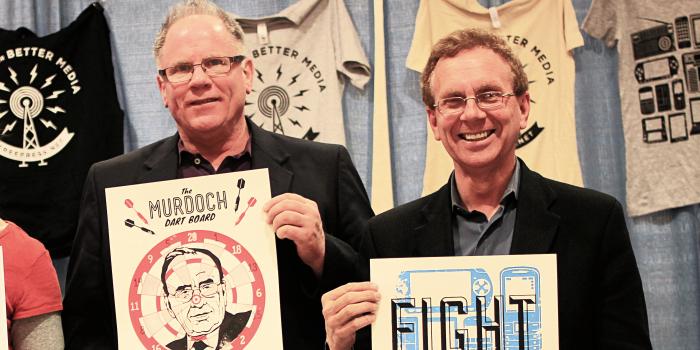Press Release
Senate Commerce Committee Approves Spectrum Bill
Contact: Timothy Karr, 201-533-8838
WASHINGTON -- On Wednesday, the Senate Commerce Committee held a markup of S.911, the Public Safety Spectrum and Wireless Innovation Act, which later passed by a vote of 21-4. A key objective of the bill is to create a long-overdue, interoperable public safety broadband network. The bill also proposes to allocate more spectrum for commercial mobile broadband use by repurposing current TV spectrum, among other methods.
The version of the bill adopted by the committee today recognizes the importance of preserving unlicensed spectrum use in the TV band. Yet, it also requires a minimum of 84 MHz of spectrum to be auctioned. This requirement limits the discretion of the FCC to allocate spectrum for unlicensed use, and puts in jeopardy the "Super Wi-Fi" agenda advanced by a bipartisan Federal Communications Commission under both Chairman Julius Genachowski and former Chairman Kevin Martin.
Free Press Action Fund Policy Director Matt Wood made the following statement:
"For years, the public interest community, technology companies and the FCC have been working to promote the unlicensed use of otherwise available spectrum in the TV bands, because of the potential commercial and social benefits of 'Super Wi-Fi' networks and other innovative new services. As we stand on the verge of realizing these benefits, today's spectrum legislation appropriately recognizes the value of preserving unlicensed access to this spectrum in every market.
“We are concerned, however, that the bill includes an unnecessary auction target that jeopardizes the viability of these plans. This unnecessary and avoidable restriction threatens the elimination of TV white spaces without ensuring adequate substitutes in beachfront spectrum. The legislation currently expresses a clear goal of maintaining adequate unlicensed spectrum, but the bill's limits on FCC flexibility may make this goal impossible to achieve.
"We encourage legislators to remove this restriction as the bill continues through Congress, so that the FCC can facilitate the proper mix of auctioned, unlicensed, and broadcast use of this band."
The version of the bill adopted by the committee today recognizes the importance of preserving unlicensed spectrum use in the TV band. Yet, it also requires a minimum of 84 MHz of spectrum to be auctioned. This requirement limits the discretion of the FCC to allocate spectrum for unlicensed use, and puts in jeopardy the "Super Wi-Fi" agenda advanced by a bipartisan Federal Communications Commission under both Chairman Julius Genachowski and former Chairman Kevin Martin.
Free Press Action Fund Policy Director Matt Wood made the following statement:
"For years, the public interest community, technology companies and the FCC have been working to promote the unlicensed use of otherwise available spectrum in the TV bands, because of the potential commercial and social benefits of 'Super Wi-Fi' networks and other innovative new services. As we stand on the verge of realizing these benefits, today's spectrum legislation appropriately recognizes the value of preserving unlicensed access to this spectrum in every market.
“We are concerned, however, that the bill includes an unnecessary auction target that jeopardizes the viability of these plans. This unnecessary and avoidable restriction threatens the elimination of TV white spaces without ensuring adequate substitutes in beachfront spectrum. The legislation currently expresses a clear goal of maintaining adequate unlicensed spectrum, but the bill's limits on FCC flexibility may make this goal impossible to achieve.
"We encourage legislators to remove this restriction as the bill continues through Congress, so that the FCC can facilitate the proper mix of auctioned, unlicensed, and broadcast use of this band."




